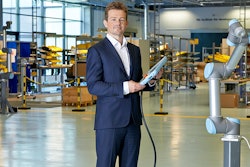The average consumer doesn't necessarily think about food when it comes to next-gen technology, but industries like food manufacturing, distribution and general food service enjoy many benefits. From monitoring livestock and crops in the field to ensuring consistency and quality across the board, tech startups and entrepreneurs are starting to take a deeper look at the future of food in the United States.
Slaughter-Free Seafood
While Finless Foods' take on seafood isn't the real thing, its product — which derives cultured tuna from fish cells — is slaughter-free and highly sustainable food. It has already reduced production costs by 50 percent and hopes to reach a price point that's on par with standard Bluefin tuna before 2020.
Another innovative seafood manufacturer, New Wave, is creating imitation shrimp from a combination of pea protein and algae oil. It’s already received $250,000 in initial funding and currently sells to various colleges and restaurants throughout the country. New Wave hopes to enter the mainstream in select U.S. markets before 2019.
Food Delivery and Catering Services
The concept of food delivery is nothing new. Pizza chains have been doing it for years — sometimes in 30 minutes or less. What about local chains that don't offer delivery services? What about upscale, fine dining establishments?
For some, the solution comes through the next-gen networking and mobile connectivity offered by the 21st century. Many third-party delivery services are cropping up around the country to pick up and deliver your orders for you. At the end of the day, it depends on what suites your lifestyle. If you don’t have the time, paying more to have food delivered for you may be the best solution.
However, there are still benefits to ordering direct. Not only do more restaurants give customers the option of calling in for faster service, they offer take-out services that cut out the middle man, and therefore cut your overall costs. Communication is also more straightforward as you’re speaking directly with someone from the restaurant.
The Food Computer
Researchers with the Massachusetts Institute of Technology are creating the Open Agriculture platform to support a universal food computer and create "a billion new farmers."
The system, known as controlled environment agriculture (CEA), uses advanced lighting and incubation systems to control climates and produce crops year-round without the risk of drought or disease. Growth rates in early CEA tests are up to five times faster than standard methods and consume 90 percent less water.
While this is an innovative project, there are other, similar initiatives in the works. Philips Electronics currently grows 12,000 lettuce heads per day in its new LED farm, and Japan is experimenting with various forms of technology, too.
Vertical Farms
Traditional farms are grown on a single plane. Unfortunately, farmers are running out of space to plant new crops. Vertical farming, which uses stacked, artificial fields to fit more crops into a smaller footprint, is a potential solution.
According to recent studies, vertical farming results in fewer CO2 emissions from transportation, reduced risk of disease or drought, and access to fresh fruit and vegetables throughout the whole year. Vertical farming works well with large-scale, industrial farming and smaller, urban agriculture projects, too.
Plant-Based Meat Products
A company known as Beyond Meat has been in business for several years. Based out of California, it received significant support from Bill Gates, founder of Microsoft, which helped the startup during its early years. Its most popular product, a faux hamburger, consists of pea protein, yeast extract, coconut oil and beet juice.
Those who've tried Beyond Meat's food say it is nearly identical to the real thing. The company's CEO, Ethan Brown, admitted they're not quite perfect, saying, "We're not there yet, but we're getting closer and closer."
Beyond Meat products are currently available at select Whole Foods grocers and the popular West Coast vegetarian chain Veggie Grill.
The Future of Food Is Now
From harvesting imitation seafood and producing artificial meat to vertical farming and access to delivery services in remote locations, the entire food industry is changing. A recent study indicated that 78 percent of our nation's schools had experienced better food service as a result of new technology — and there's a lot more to come in the future.






















